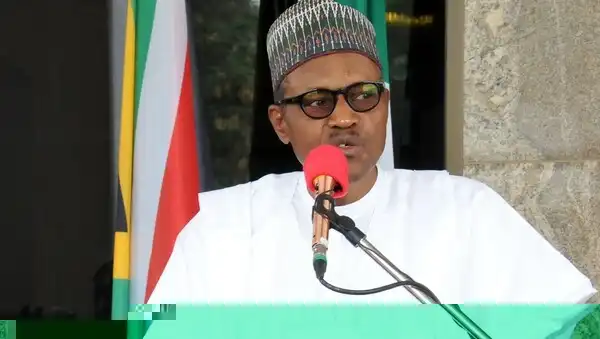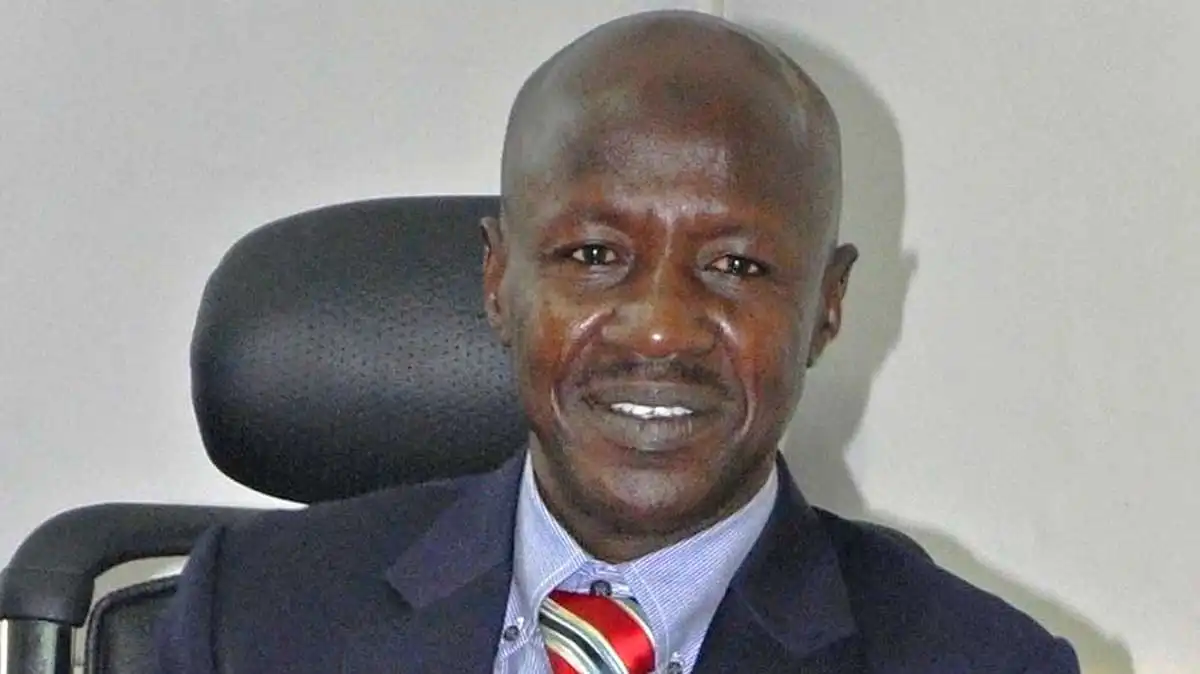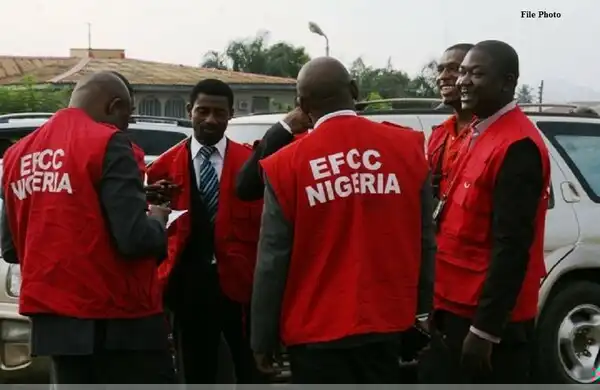
President Muhammadu Buhari. PHOTO: Philip Ojisua
Aside generating a strong debate that has created great awareness of the evil of corruption and the need to fight it, a number of other things can be stated for the President Muhammadu Buhari/All Progressives Congress (APC) administration’s anti-corruption crusade.
It has created fear among some sections of the elite class. Chances are that plain stealing of public money in some federal institutions might, a while, be curtailed. Buhari holds on to his commitment to the fight. This can be stated to have won for it, a measure of recognition even among his harsh critics, including those who are still skeptical or insist that it is selective.
He is calling attention to corruption by making it a central policy and fulcrum of his 10 months government. But being cancerous, he needs to re-examine the methodology.
Security votes have been made un-accounted for; sludge money, for government officials to use, as they want or pocket.
The Economic and Financial Crimes Commission (EFCC) and Independent Corrupt Practices and other Related Crimes Commission (ICPC) backed by other security agencies have been up and doing with indictments, questioning, arrests and commencement of prosecution of some leading politicians and executives of the immediate past administration.

Ibrahim Magu
EFCC chairman, Ibrahim Magu is upbeat; he denies being selective, insisting, “We are arresting all the corrupt people. We have not arrested anybody that has not committed any offence. We are winning the war.”
Still, any notion of victory at this stage is hurried. Corruption is no easy war; not even for Buhari who has declared it like a warrior on the front line. The on-going arrests and charging to court is quite the easy and handy part. Prosecution will be long, for it is never easy sending big men to jail. Cancerous corruption – the systemic disease – remains vastly unaffected.
Money palaver
President Muhammadu Buhari revealed that over N3 trillion, has been saved through implementing the Treasury Single Account (TSA), one of the government’s measures for combating fraud and money laundering.
“The money would have been mismanaged without TSA,” added the President. I was made to understand that vouchers would have been quickly raised towards the financial year and cheques made. Whether they go into projects or private pocket nobody can prove it to you. But that money is there. It is identified.”
The President stated the money would be allocated to the rest of the country when the budget is approved by the legislature (legislature has appropriated a budget of 6.06 trillion for this year).
For many, it was cheering news. However, others saw it as only a beginning in accountability on public funds; it does not amount to full disclosure, they argued.
The government would not disclose amounts of stolen public money so far recovered. Senior government officials have been speaking on why the recoveries would not be made public yet. Accountant General of the federation, Alhaji Idris Ahmed, for example, stated it would be preposterous for the recoveries to be made known whereas the issues were still under litigation.
Corruption and elections
It gets worse in the case of elections: it is not clear how any anti-graft war in Nigeria would be won as long as politicians will fight for elections.
Buhari is fighting corruption at the federal level. He has created some public excitement by implicating some leading figures and executives of the immediate past government.
It is not clear if states and local governments have even heard about the war. Nothing there to show they are participating in it, except for occasional petitions lodged with the EFCC from aggrieved persons.
During the 2015 election campaigns, immediate past President Goodluck Jonathan faced allegation of spending N2 trillion re-electioneering campaigns, which he denied.
The allegation came up in the midst of public interest generated by a huge N23 billion stated to be raised at a single banquette in Abuja organized by his party – Peoples Democratic Party (PDP) for his re-election bid.

File Photo
By electoral law, the maximum campaign amount allowed for a Presidential contestant is N1billion, state Governors N250 million.
As stated by section 90 of the electoral Act, the Independent National Electoral Commission (INEC) has power to impose limitation on the amount of money or assets any individual or group of persons can contribute to a political party.
The law in operation since 1999 was intended to checkmate excessive spending during election campaigns. It was for INEC to monitor parties and contestants on levels of expenses incurred during elections and disqualify any if there was a breach. Pointless asking if INEC has ever done any checking of campaign expenditures by political parties.
Election expenditures
Elections are money business in Nigeria and it is not clear how the war on corruption will be won in the face of desperate politicians who use incredible amounts of money to fight elections.
Allegations of scandalous amounts of money used by political parties in the 2015 elections, led a social-activist group, Socio-Economic Rights and Accountability Project (SERAP) to go to court in protest against APC and PDP.
The group’s action was over the parties’ “failure to disclose their sources of spending in their respective campaigns and other operations linked to the February 2015 general elections.” It was to no avail.
Last month, however, in an action also filed by SERAP since 2011, and in the interest of justice and accountability, a Federal High Court in Lagos delivered a judgment mandating Buhari to publish up-to-date information on recovered stolen money since 1999.
A big part of the problem is the widely impoverished populace that has been made aware that government is the place to make quick money.
Nigerians are well aware that politicians at all levels –whether federal, state or local government fight for public office to steal and get rich quick. They, too, have become adept at demanding their share. And they can sometimes be quite brutal.
In 2015, both APC and PDP imposed huge nomination fees for their respective political aspirants at various levels. Buhari had to bring out the N27.5 million APC fee to obtain his nomination forms. It was speculated that the party then new and coming on board for the first time as a single entity to face a general election had to raise funds.
On its part, the PDP that had cleared its terrain to enable Jonathan run as a sole candidate imposed N22 million. When the country went to vote, PDP and its Presidential runner were sent packing.As for the victorious APC, the money debate as it concerns how Buhari got his party’s fee to pay is endless. It was well advertised at that time of the election that the President hadn’t up to N2 million in money and assets to his name.It was testimony to his Spartan lifestyle and abhorrence of corruption. But it has also remained a ground for skeptics to raise distrust and suspicion.
Nigerians are well aware that politicians at all levels –whether federal, state or local government fight for public office to steal and get rich quick. They, too, have become adept at demanding their share. And they can sometimes be quite brutal.
Money is name of the game
Even if it wanted, INEC wouldn’t succeed in carrying out even a surface check of money spent by parties for advertising/other forms of publicity or bribing, “treating” supervisors and electors to buy or inflate votes.The politician has to have plenty of money to be in the game and stay in it. To stay, he has to be armed with sumptuous amounts. He must be prepared to spend money on daily basis; to buy or “oil” everything – including support and consolidation of support.
He would hold meetings at all levels – in groups or parties, communities, districts, wards, local government, state and even up to national.
Politicians have to steal and or borrow incredible amounts, if not they won’t be able to compete. They have assurance of coming out from government stinking rich.
Most state Governors whether former or serving who ran election successfully since 1999 spent no less than N1 billion to make it.
In 2015, hardly did any politician get to the Senate without spending at least N700 million. A House of Reps aspirant had to cough out minimum N450 million.
A major challenge of the anti-corruption war is tackling political godfathers/donors. The typical Nigerian elected official (whether at the federal, state or local government level) is there “to make it big.”To make it big, an office holder has to also give access to his subordinates.
As a result, everybody in Nigeria wants his own person or his tribe’s man to become President or Governor: “If my person is in office, I too, can make it.”That is why when a politician gets into public office; he is driven by the urgency to payback debts incurred at election. Then he recoups. And then, he goes after making bountiful fortunes. Thus, corruption came to be made Nigeria’s culture of governance.
2014 Confab approach to corruption
Combating the impact of public corruption was of great concern to the 2014 National Conference, beside strong desire to attempt restructuring for national justice, equity and fairness.
Delegates’ concern showed in recommendations such as abolition of security votes and making the legislature part-time in place of the prevailing full-time legislature.
Security votes have been made un-accounted for; sludge money, for government officials to use, as they want or pocket.
Nigerian legislators insist on being “sovereign” and “representatives of the people.” But to the people, it is a gimmick: for legislators to be able to corner off public money for sharing among them. The 2014 confab delegates reasoned that part-time legislature would cut costs and reduce corruption at that level.The delegates also felt the country needed to leverage on equity and balance by reducing the functions and powers of the federal government and devolving them to the states.
For until attention is taken from the centre the war on corruption would be raging in Abuja. Its impact would only be tokenish.
Guardian